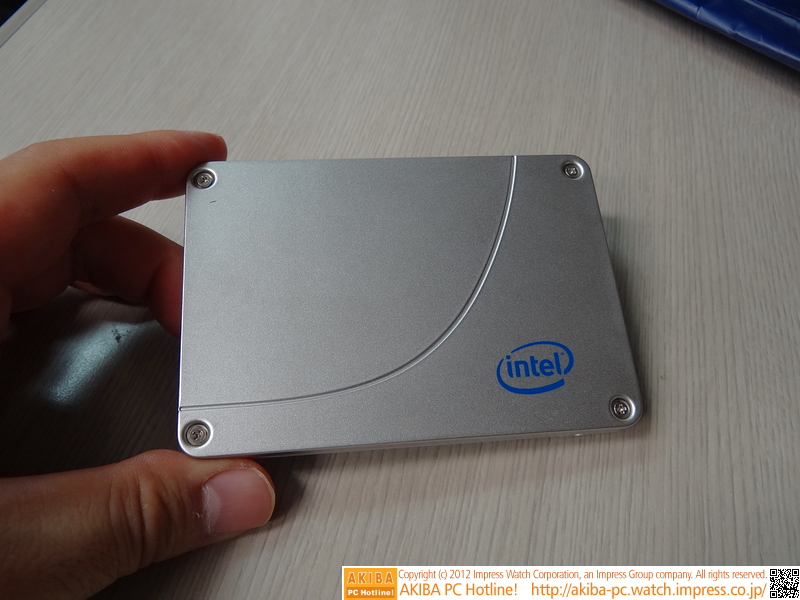End of Life for 25nm-based Intel SSDs Nears
Intel is reportedly taking final orders for SSDs based on 25nm NAND flash by mid-October.
TweakTown is reporting an upcoming discontinuation of Intel SSD families using the company's 25 nm MLC NAND flash memory. These include the 313 Series, 520 Series, 525 Series and the enterprise 710 Series. The latter line was replaced by the new DC S3x00 Series, and the Intel 525 Series and 313 Series are mSATA products for OS/storage and cache respectively.
X-bit Labs adds that the 320 Series also falls on the chopping block. The last product shipment timeframe for 25 nm products is December 15, 2013 to January 20, 2014, depending on the model. Customers will need to place orders between late September and mid-October to fall into that window.
Intel also reportedly warned that it may not be able to meet demand for previous-gen products, but will make commercially reasonable efforts to support last time order quantities. However due to supply limitations, Intel may be forced to fill orders using products with 20 nm NAND flash instead. There also many be situations where Intel is unable to support customer demand on either 25 nm or 20 nm product orders.
Intel's newer 335 Series 2.5-inch SSDs are based on 20 nm processing, and currently ships in 180 GB and 240 GB capacities – a 480 GB version has not been launched.
Get Tom's Hardware's best news and in-depth reviews, straight to your inbox.

Kevin Parrish has over a decade of experience as a writer, editor, and product tester. His work focused on computer hardware, networking equipment, smartphones, tablets, gaming consoles, and other internet-connected devices. His work has appeared in Tom's Hardware, Tom's Guide, Maximum PC, Digital Trends, Android Authority, How-To Geek, Lifewire, and others.
-
4745454b They use transistors like CPUs and RAM so yes. It's a bit like the increase in areal density that hdds get. This is what lets us go from 250GB per platter drives like we used a few years ago, to the "monster" 1TB per platter drives that we have now. Pack the bits tighter together, get more space on the drive. In the case of SSDs because there is no platter, this is done with smaller transistors.Reply
What I wonder is how much an issue this is. For desktop users it doesn't matter much. But losing the enterprise drive might be an issue for business's? That and does the size of the transistor really matter? For example, couldn't they just make a 710 series with the newer 20nm transistors? But keep everything else the same so businesses that need a direct drop in replacement could get one? Smaller sized transistors it might even get a voltage/power drop. I would think it wouldn't matter much if they need a new SSD then they could just buy a newer 20nm drive. But I don't buy enterprise type drives so I'm not sure of the requirements. -
Stealthman80 all memory is manufactured in the same way as a processor, so yes that's basically true. The thing for memory is, the smaller you go it gets cheaper to make, good news for us with the prices. Bad news is it gets slower and has less endurance....Reply -
CaedenV Hey Kevin,Reply
We would love to see some articles about some of the failure rates for drives that are currently in the 5+ year range. Has SLC proven to be as durable as promised? Is MLC panning out to be as bad as everything feared? Is it the flash that tends to die, or the controllers? -
Cy-Kill Reply4745454b, June 24, 2013 1:46 PM:
But losing the enterprise drive might be an issue for businesses?
Did you not see this:
'...the enterprise 710 Series. The latter line was replaced by the new DC S3x00 Series...' -
pjmelect When they shrink from 25nm to 20nm they are also reducing the write endurance of the drive. This does matter to enterprise drive users and maybe home users as well. To mitigate this you can get a larger SSD drive, but that is more expensive. I don't see the price of SSD drives reducing though, since Christmas the price has increased.Reply -
rwinches Here is a Price cutReply
http://www.rakuten.com/prod/ocz-agility-3-480gb-2-5-sata-iii-solid-state-drive-ssd/222361893.html
